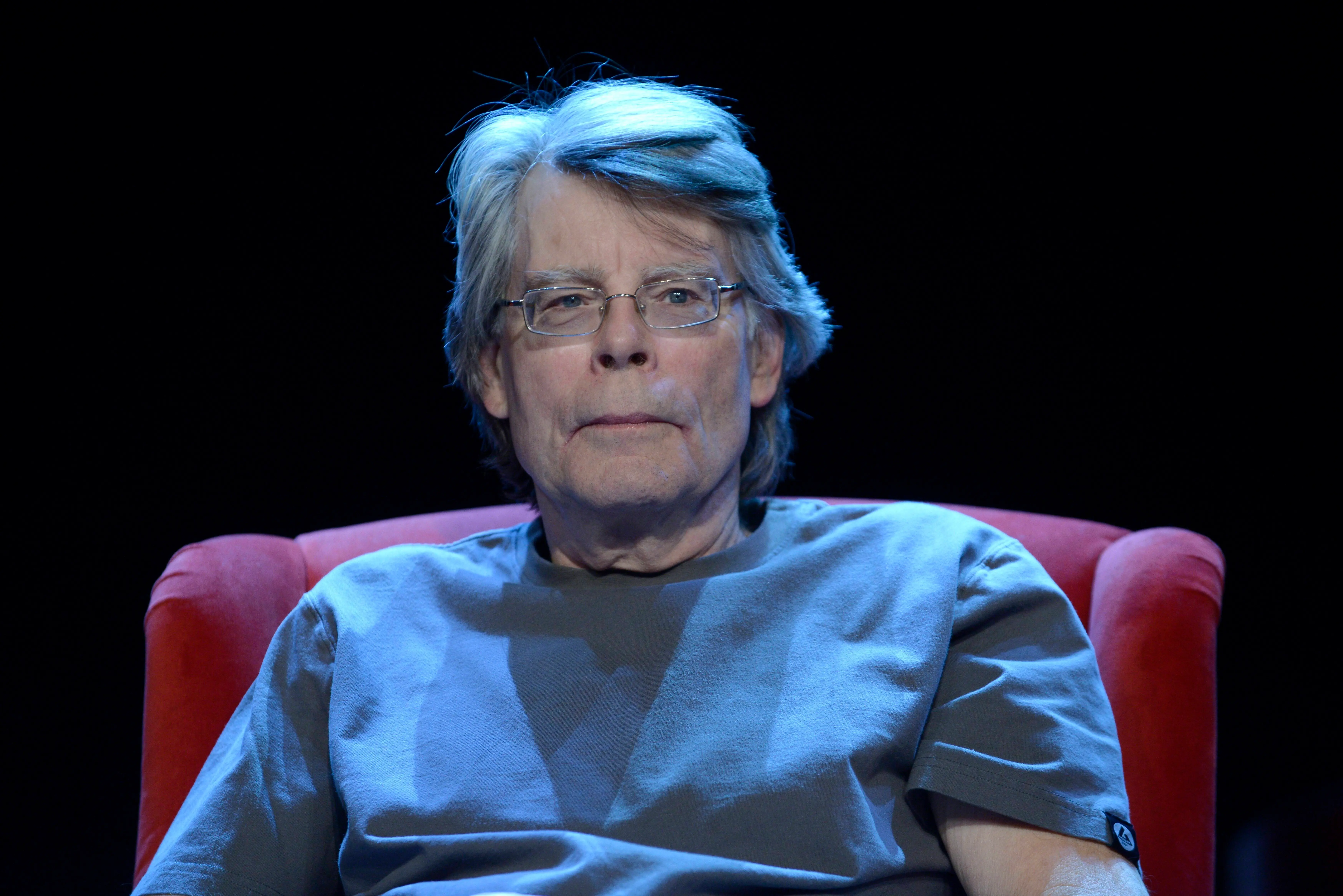"Liberal logic should be studied" - Stephen King faces backlash online after defending trans community in Minnesota shooting comment
-
 PARIS, FRANCE - NOVEMBER 16: American writer Stephen King poses during a portrait session held on November 16, 2013 in Paris, France. (Photo by Ulf Andersen/Getty Images)
PARIS, FRANCE - NOVEMBER 16: American writer Stephen King poses during a portrait session held on November 16, 2013 in Paris, France. (Photo by Ulf Andersen/Getty Images)The United States of America was shaken yet again by the tragic shooting carried out by 23-year-old Robin Westman during mass at Annunciation Catholic School in Minneapolis on Wednesday (August 27). The incident has once again ignited debates over political ideologies and gun laws in the country. Amidst the flood of reactions, bestselling horror author Stephen King became central to controversy with a tweet that many saw as divisive.
Responding to a post that called transgender people “dangerously sick and mentally ill” in light of the Minnesota shooting, King tweeted that:
"Trans is not the problem. He had a gun. That’s the problem."
His words immediately went viral, drawing both praise and backlash. One user in particular, labeled it as 'liberal logic', suggesting that it should be studied since it sounds extremely illogical to them.
"Being drunk was not the problem, he had a car. That’s the problem. Being fat was not the problem, he had food. That’s the problem. Being an id1ot was not the problem, he was Stephen King. That’s the problem. Liberal logic should be studied," read the tweet.
Some understood his point as a critique of America’s lenient gun laws, while others accused him of excusing the shooter’s actions or minimizing mental health concerns. The dispute quickly spiraled into a heated online exchange that put King at the center of another cultural storm.
Stephen King and the ‘liberal logic’ backlash explained
Shortly after Stephen King’s tweet, a mocking response began circulating online that characterized his stance as an example of flawed liberal reasoning. This reply quickly gained traction and served as the springboard for the phrase “liberal logic should be studied” to trend across social platforms.
The backlash unfolded against the grim reality of the Minnesota church shooting. Authorities reported that Robin Westman, a 23-year-old former student who identified as transgender, opened fire through stained-glass windows at Annunciation Catholic School during Mass. Two children, just eight and 10 years old, were killed, and 17 others were injured, including 14 children and three elderly parishioners. Westman ultimately took his own life inside the church.
Police later revealed disturbing details: Westman’s weapons allegedly bore hateful phrases such as “6 million wasn’t enough” and “Israel must fall,” while a device labeled “Jew Gas” pointed to extremist anti-Semitic and anti-Israel influences. The shooter also left behind YouTube videos referencing mental health struggles and suicidal thoughts. The FBI has since classified the attack as an act of domestic terrorism and a hate crime targeting Catholics.
In light of such a devastating incident, King’s tweet was bound to stir debate. Many critics argued he had ignored the shooter’s psychological instability or ideological extremism. Yet, King’s defenders emphasized that his comment was not about denying mental illness, but about highlighting America’s systemic gun issue.
In states like Minnesota, critics of U.S. policy argue that firearms are far too accessible, even for those struggling with violent thoughts or extremist ideologies. By his comment's logic, King was simply pointing to this accessibility as the crucial factor that turned intent into mass violence.
His comment started a flood of tweets ridiculing him, with many accusing him of putting ideology above logic.
"So it’s the gun’s fault, but not the person’s? Got it #BREAKING: A gun went on a rampage after taking control of its owner. Police have since arrested the weapon," tweeted a user on X.
"Yawn...you pump a kid full of hormones and drugs and encourage them to chop off body parts...that's the F'ing problem..FFS with this tired bullshit...," another user expressed their disagreement.
"You don’t blame a car for a drunk driver," a X user jokingly ridiculed King's statement.
As more reactions continue to pour in, it is clear that Stephen King’s brief remark has once again placed him squarely in the spotlight of America’s culture wars.
Stephen King and past controversy over transgender rights
This is not the first time Stephen King has found himself in the middle of a debate over transgender rights. In 2020, author JK Rowling once publicly praised King on Twitter, calling him a writer she deeply admired. But when pressed by fans over the transgender rights issue, King clarified his stance with the statement: “Yes. Trans women are women.”
Rowling swiftly deleted her praise and blocked him, sparking widespread discussion about the ideological divide between the two literary giants. For his part, King has continued to use his platform to defend marginalized groups, even when it brings controversy.
TOPICS: Stephen King
- The Running Man 2025 becomes Stephen King's highest-grossing film this year despite the recovery battle
- Carrie: Everything to know about the TV series as Mike Flanagan wraps up filming
- Stephen King apologizes for politically charged tweet about Charlie Kirk after his death, amid backlash
- HBO Max Will Revisit the World of Stephen King's It in Welcome to Derry